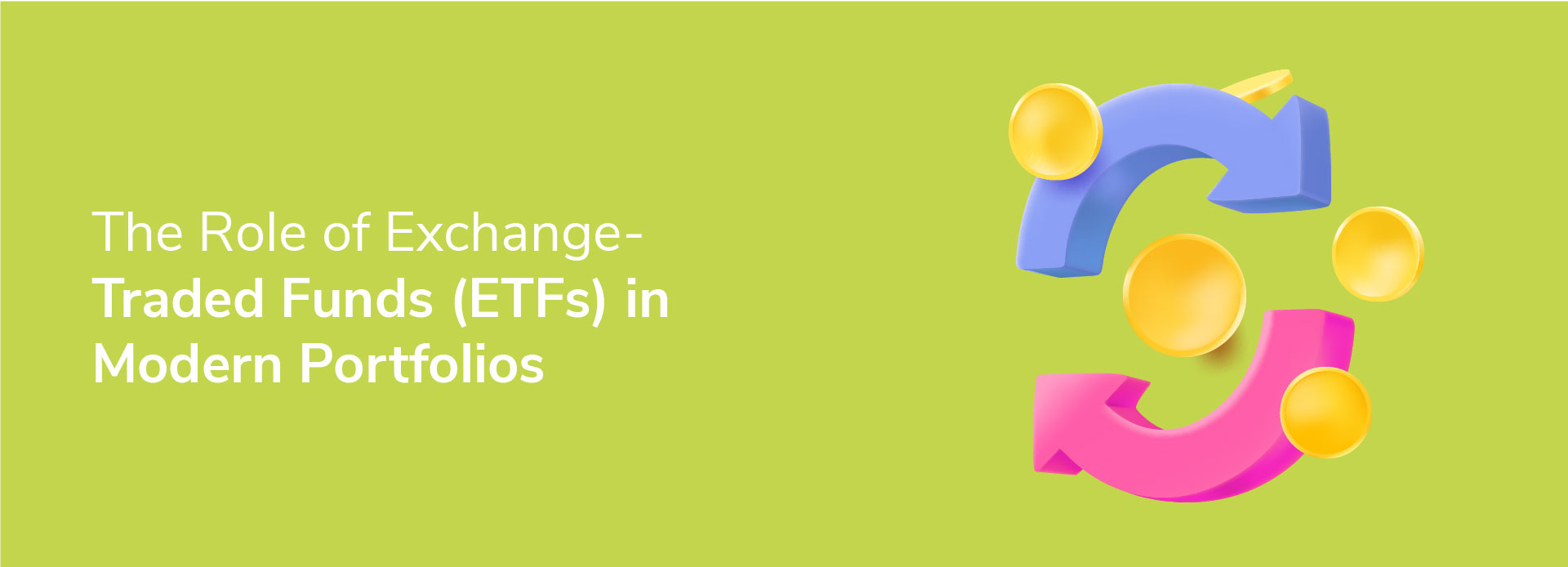
The Role of Exchange-Traded Funds (ETFs) in Modern Portfolios
09 April 2024 | By INDIE
Imagine an Exchange-Traded Fund (ETF) as your personal stock market grab bag. Inside, it holds a mix of investments, ranging from stocks to bonds, forming a diverse package. When you decide to dive in, you're essentially buying a piece of this bag – a share. But here's where it gets interesting – unlike a regular bag, the contents inside can change in value throughout the day.
The actual worth, known as Net Asset Value (NAV), is determined when the market closes. This unique feature allows ETFs to trade with flexibility, much like buying and selling individual stocks. So, as you explore, let's uncover how embracing ETFs can contribute to building a modern and dynamic portfolio tailored just for you.
Reasons Behind ETF Popularity in Modern Portfolios
In your investment journey, ETFs are rapidly gaining popularity in India, and the reasons are compelling. Here's why they might be the perfect fit for you:
1. Transparency and Cost-Effectiveness: When it comes to your investments, clarity is key. ETFs provide complete transparency about their holdings, letting you know precisely what you're investing in. What's more, the low fees associated with ETFs make them a cost-effective choice, ensuring you keep more of your returns.
2. Flexibility and Liquidity: Imagine having the power to make investment decisions on your terms. ETFs offer just that. Their trading flexibility means you can buy or sell throughout the day, seizing opportunities as they unfold. Like stocks, they provide instant liquidity, putting you in control of your investment moves.
3. Diversification Made Easy: Building a diversified portfolio doesn't have to be complex. With ETFs, you gain instant access to a variety of assets, whether it's a specific sector or an entire index. This built-in diversification not only simplifies your investment strategy but also lowers the risk compared to choosing individual stocks.
4. Tax Advantages: Keeping more of what you earn is always a plus. ETFs come with certain tax benefits, distributing capital gains less frequently and potentially lightening your tax burden. Moreover, the tax implications of buying and selling within the same ETF may differ from other investment options, offering you a strategic advantage.
5. Innovation and Choice: Your investment goals are unique, and so should be your choices. The Indian ETF market is evolving continuously, presenting you with a diverse array of options beyond just equities. Now, you can explore themes like gold, international markets, and fixed income through ETFs, tailoring your investments to match your distinct goals.
In essence, ETFs provide a user-friendly and efficient way for you to navigate the world of investments, offering transparency, flexibility, and a range of choices. As you explore the dynamic landscape of the Indian ETF market, consider how these unique benefits align with your financial objectives.
Also Read: What is common stock and its different types? How does it differ from preferred stock?
Intraday Trading with ETF: Explore the ETF Benefits
If you're delving into the dynamic world of stock broking practices, intraday trading might have caught your attention. And if you're considering Exchange-Traded Funds (ETFs), you're on the right track. Here's why intraday trading with ETFs could be a strategic move for you:
ETFs offer a unique blend of flexibility and low cost, making them increasingly popular among investors like yourself. What sets ETFs apart is their intraday trading capability, allowing you to buy or sell shares within the span of a single market day.
In volatile market climates, ETFs become valuable tools for tactical allocation adjustments. If you foresee short-term opportunities or risks in a specific sector or industry, you can act swiftly. If you predict a short-term surge in a specific sector, you can buy shares in an ETF tracking that sector. Then, if your prediction turns out to be accurate, you can sell the shares at a profit on the same day.
Intraday trading with ETFs empowers you to manage risk effectively. Just like stocks, ETFs enable you to set stop-loss orders. This means that if the price drops below a level you're comfortable with, your shares are automatically sold. It's a risk management strategy that proves especially beneficial in volatile market conditions, helping to limit potential losses.
While intraday trading with ETFs presents exciting opportunities, it's essential to recognize the risks involved. Successful intraday trading demands a high level of skill and experience. Quick analysis of market data, informed decision-making, and emotional discipline are prerequisites. Impulsive decisions based on fear or greed can pose challenges, emphasizing the need for a strategic approach.
Conclusion
For you, the investor, Exchange Traded Funds (ETFs) present a plethora of advantages that can transform your investment approach. These financial instruments offer transparency, cost-effectiveness, flexibility, diversification, tax benefits, innovation, and choice. They are rapidly gaining favour in modern portfolios, challenging the traditional dominance of mutual funds.
Understanding the various types of ETFs and their unique roles in different portfolio strategies empowers you to make well-informed decisions aligned with your investment goals. INDIE provides a seamless avenue for you to dive into the world of ETFs. They facilitate your investment journey by offering a user-friendly online stock broker platform in partnership with Paytm Money.
Start Investing Now!





